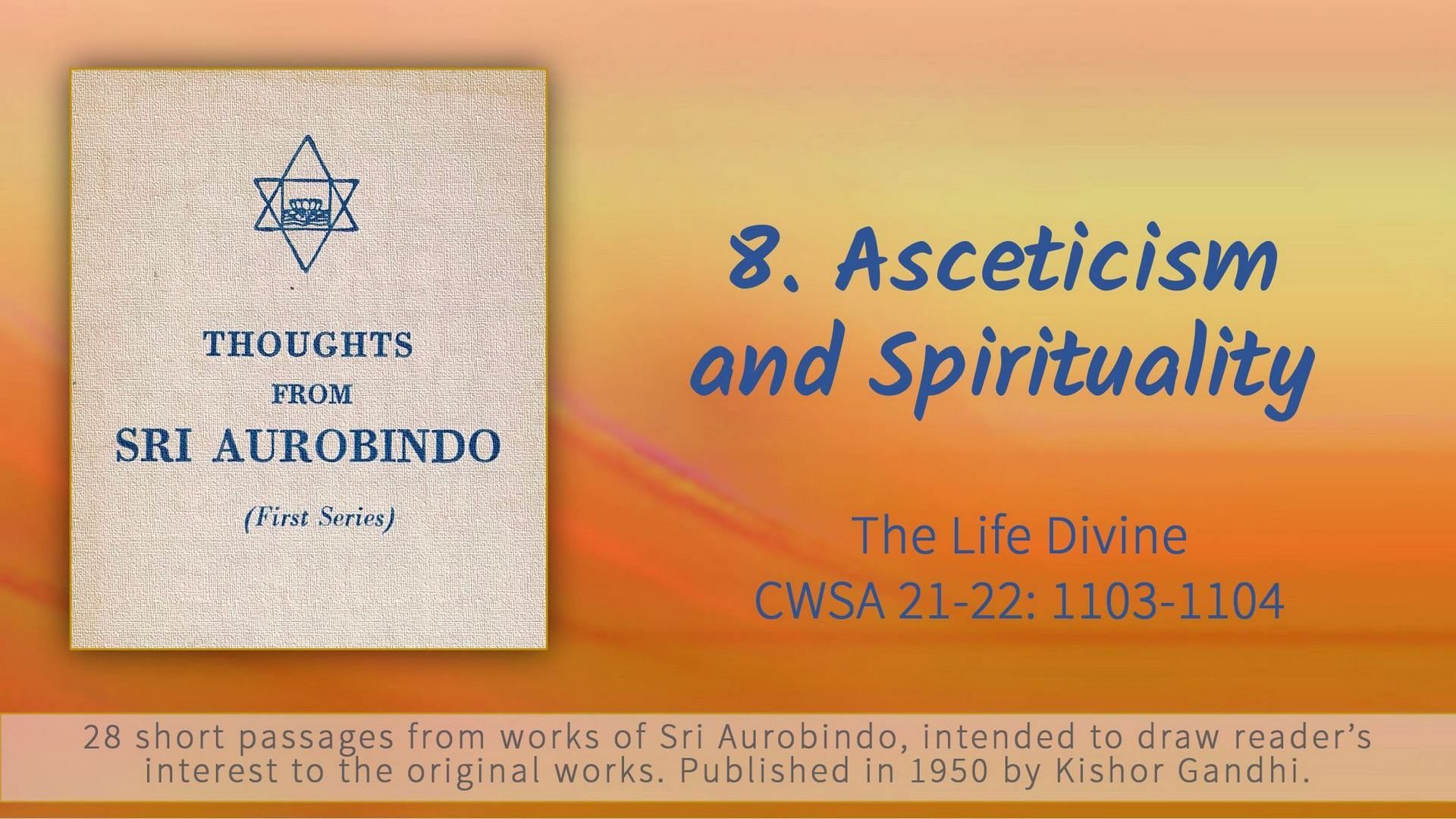
It is almost universally supposed that spiritual life must necessarily be a life of ascetic spareness, a pushing away of all that is not absolutely needed for the bare maintenance of the body; and this is valid for a spiritual life which is in its nature and intention a life of withdrawal from life. Even apart from that ideal, it might be thought that the spiritual turn must always make for an extreme simplicity, because all else would be a life of vital desire and physical self-indulgence. But from a wider standpoint this is a mental standard based on the law of the Ignorance of which desire is the motive; to overcome the Ignorance, to delete the ego, a total rejection not only of desire but of all the things that can satisfy desire may intervene as a valid principle. But this standard or any mental standard cannot be absolute nor can it be binding as a law on the consciousness that has arisen above desire; a complete purity and self-mastery would be in the very grain of its nature and that would remain the same in poverty or in riches: for if it could be shaken or sullied by either, it would not be real or would not be complete. The one rule of the gnostic life would be the self-expression of the Spirit, the will of the Divine Being; that will, that self-expression could manifest through extreme simplicity or through extreme complexity and opulence or in their natural balance, — for beauty and plenitude, a hidden sweetness and laughter in things, a sunshine and gladness of life are also powers and expressions of the Spirit. In all directions the Spirit within determining the law of the nature would determine the frame of the life and its detail and circumstance. In all there would be the same plastic principle; a rigid standardisation, however necessary for the mind’s arrangement of things, could not be the law of the spiritual life. A great diversity and liberty of self-expression based on an underlying unity might well become manifest; but everywhere there would be harmony and truth of order.
— The Life Divine
CWSA 21-22: 1103-1104



